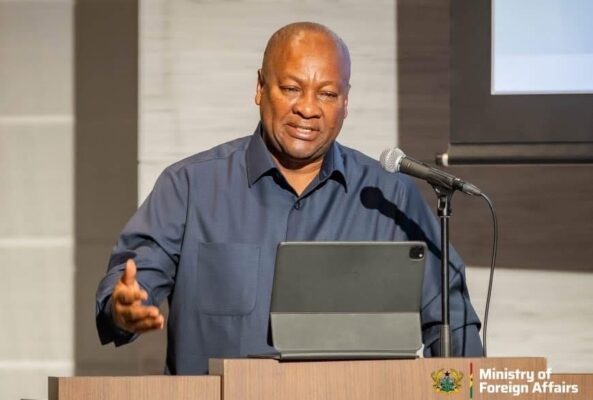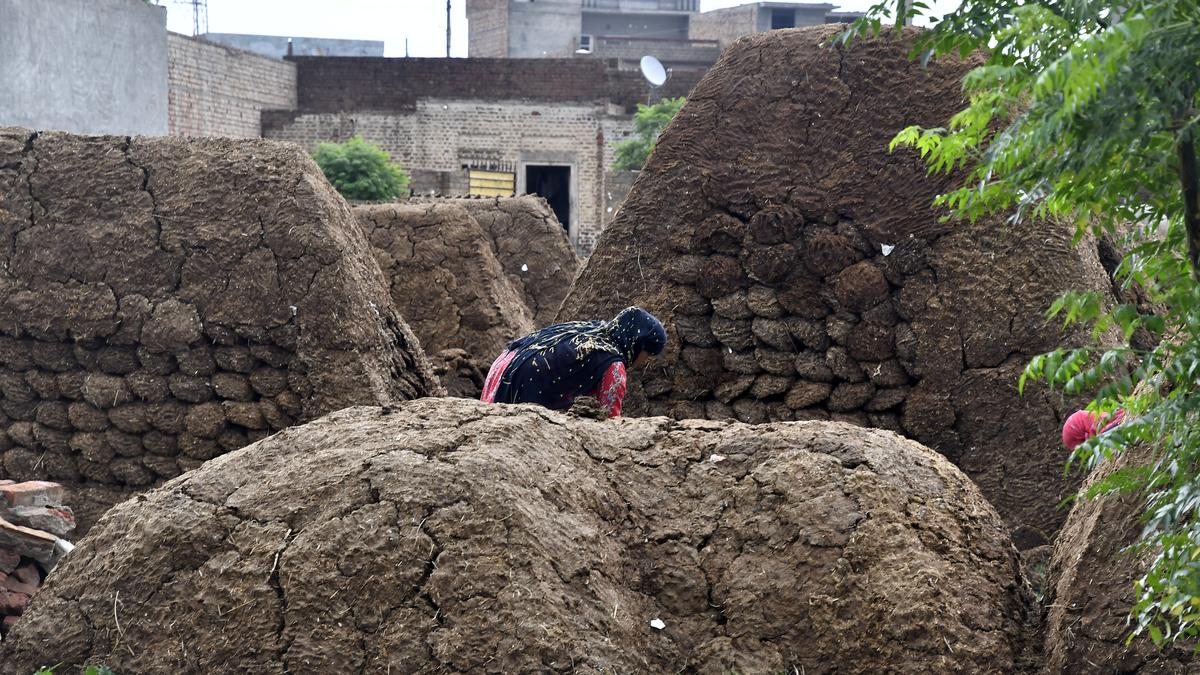By Nana Yaw Prekoh
Copyright ghanaguardian

President John Dramani Mahama has come under intense scrutiny after statements suggesting that his government seeks to shield small-scale illegal miners—commonly referred to as galamseyers—while vowing to continue the fight against environmental degradation caused by illegal mining.
In a media briefing at the Jubilee House last Wednesday, President Mahama acknowledged the severe environmental impact of galamsey, including the high turbidity of rivers and the destruction of forest reserves.
Yet, he signaled that his administration is prioritizing the livelihoods of the estimated four million Ghanaians who depend on small-scale mining for income than taking a drastic measure to curb galamsey.
“I’ve never deluded myself that the fight against illegal gold mining would be a one-off event. The decay has eaten so much over the last eight years, and it’s going to take a lot of work,” Mahama said.
He added, “Dealing with the issue of illegal mining is going to be a process, but we will not give up. We have a determination to get on top of it.”
Despite widespread calls for a tougher stance, the President ruled out imposing a state of emergency, explaining that current legal mechanisms are sufficient to arrest offenders and confiscate equipment.
Mahama indicated that the surging gold reserves is partly from galamsey operators, indicating that they have come to stay.
According to him the estimated four million illegal miners must also survive, hence the need to go slow on the call for imposition of state of emergency in the mining communities.
Ahead of the 2020 election, John Mahama made a promise to galamseyers that his administration will turn a blind eye on their operations and precisely that is what is happening now with free fall all galamsey operation including the active participation of his party members.
The President also defended reforms at the Ghana Gold Board (GoldBod), which aim to formalize gold trading and ensure that all gold sold in Ghana benefits the nation.
He controversially suggested that GoldBod could purchase gold from all miners, including those operating illegally, to strengthen the country’s reserves and economic resilience.
The proposal has drawn sharp criticism from former Tourism Minister Andrew Egyapa Mercer, who warned that buying gold from galamseyers risks legitimizing an illegal and environmentally destructive trade.
“If the President himself says government should buy gold from illegal miners, what signal are we sending? That is acceptable to destroy our water bodies and farmlands so long as the state can buy the gold? This undermines everything we have done to fight galamsey,” Mercer said.
Mercer emphasized that the government should instead strengthen legal mining operations and enforce compliance with regulations, warning that state support for illegal mining would embolden lawlessness and weaken environmental protection.
Background:
Galamsey has long been a source of environmental destruction in Ghana, particularly in regions like Ashanti, Western, and Eastern.
Previous crackdowns, including military-led operations, have had limited success, largely due to the reliance of local communities on small-scale gold mining for survival. Mahama’s approach reflects the challenge of balancing economic livelihoods with environmental protection.
Catholic Bishops’ Concern
The Ghana Catholic Bishops’ Conference (GCBC) and the University Teachers Association of Ghana (UTAG)—are urging Mahama to take decisive and extraordinary measures to curb what they describe as a looming national catastrophe instead of his lackluster approach.
On Monday, September 15, 2025, the GCBC issued a strongly worded statement warning that Ghana is “at the brink of destruction” due to the environmental, health, and social crises spawned by galamsey.
While acknowledging that the declaration of a state of emergency in mining-affected areas might be necessary, the Bishops stressed that such a move alone would be woefully inadequate.
The Bishops described galamsey as one of the “gravest afflictions of our time,” citing polluted rivers, poisoned soils, destroyed forests, and the erosion of farmlands.
The University of Ghana chapter of UTAG, through Dr. Jerry Joe Harrison, the association’s General Secretary, issued a chilling reminder of the human cost of galamsey during an interview on Channel One’s Newsroom programme.
“If we don’t do what we are supposed to do now, we will all die,” he said bluntly, pointing to widespread water contamination in communities such as Kwanyako.
Dr. Harrison, a scientist, warned that consumption of polluted water would inevitably lead to cancers, neurological disorders, and other deadly health conditions.



